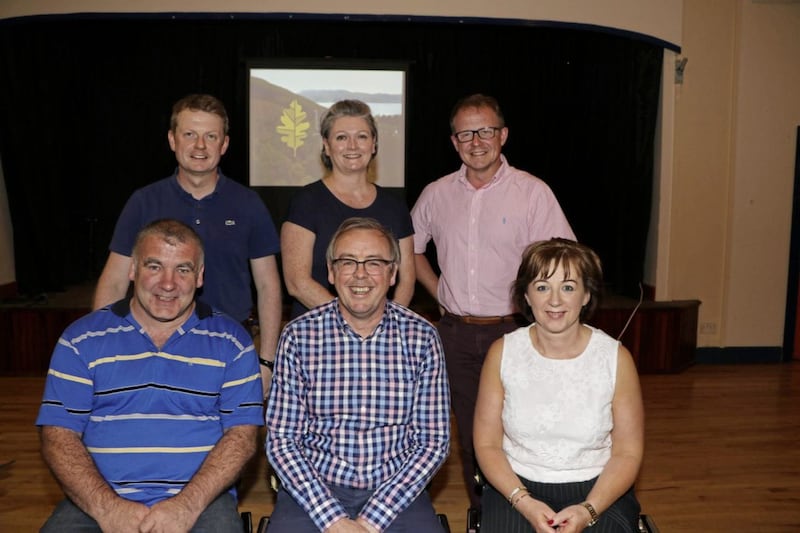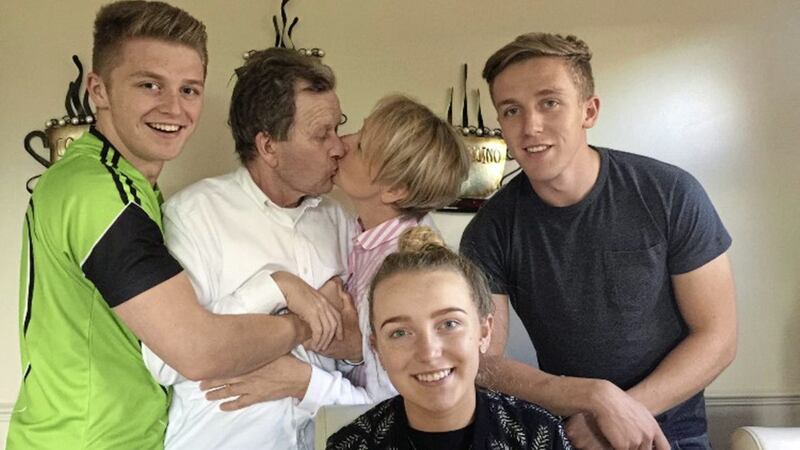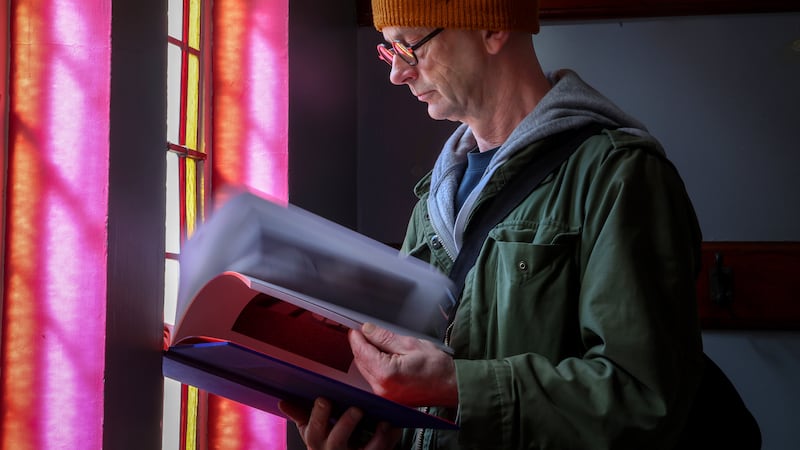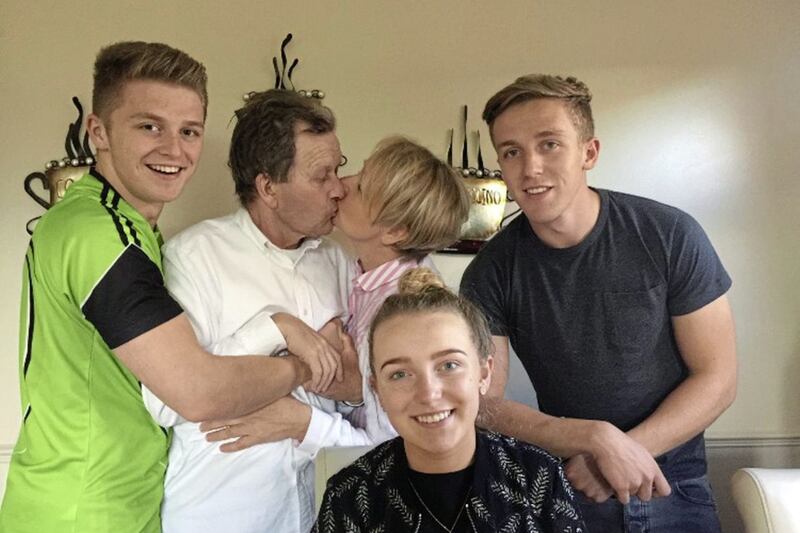WATCHING a loved one cling to life is difficult enough for relatives without having to fight for care to prevent them from suffering.
Like many health services, budgets for pallative care are being cut and the health professionals and charities providing end-of-life care are overstretched.
However, a community group in south Down, led by GP Dr Henry McLaughlin, have proposed a new local approach to "fill the gap" when it comes to palliative care.
Life & Time is a community-based charity for the people of Rostrevor, Warrenpoint and Burren who believe that "people dying at home should have the same access to symptom control as those in a hospice or hospital".
At present, patients who require palliative care in the Southern Health and Social Care Trust area are supported by GPs, specialist nurses and carers – but only during the daytime. There is also a twilight district nurse service that operates until 11pm, along with out-of-hours emergency services. Marie Curie nurses operate a night-sitting service – but only on a limited number of nights.
The Life & Time committee, spearheaded by Dr McLaughlin and nurses Glenda Hughes and Dympna Devlin, have come up with a new model that would see qualified nurses, who live locally, working between the hours of 11pm and 8am, to help patients who are most in need.
Dr McLaughlin, who has been a GP in the area for 30 years, explained the need for change.
"There are good existing services, in terms of quality. The Marie Curie nurses are all fantastic, the roaming nurses are fantastic, the out of hours nurses are fantastic, the twilight nurses are fantastic – but there are just not enough of them.
"When I started in medicine you had seven local GPs on a rota and you called the doctor at night and he came to your house. Now we have the Out of Hours service which has a lot of difficulties with recruitment and filling shifts.
"During the night, out-of-hours GP usually defer these patients to the rapid response service based in Craigavon. But there is only one nurse who covers the entire Southern board area. The involvement of the community in palliative care is the direction we should be going with end-of-life palliative care."
Dr McLaughlin believes that if appropriate services were in place, more people would die at home.
"Sixty per cent of people, when asked, say they want to die at home, but only 20 per cent actually do."
As well as increasing cancer rates, more and more dementia cases are putting an extra burden on palliative care.
"Pain is difficult to assess in dementia, but towards the end of life when people are very low and they stop eating and drinking, agitation can be a big problem. Not everybody needs medication, but families do need support. If you are alone with someone who is dying at home and you have no experience of it, it can be scary and it's helpful to have someone there."
Rostrevor nurse Connie Connolly knows from personal experience the need for such a service. Her husband Dermot was diagnosed with dementia at just 49; he died two months ago, at the age of 59.
It meant everything to Connie, and her three children Jonathan, Evan and Abby that Dermot was with them to the end.
"Because we had time to plan, we made the decision early to care for Dermot at home," Connie says. "We were adamant that when he started to get very sick we didn't want him dragged to hospital in an ambulance. Having him at home was the best thing ever. There were no visiting hours and the kids could just run upstairs and sit with their dad."

Despite being a nurse herself and having the support of her niece, also a nurse, Connie found caring for Dermot in his final three weeks extremely difficult.
"With dementia patients, it is the eating which goes first. Secondary to Dermot not being able to eat, his bowel was restricted and that led to him getting severe spontaneous vomiting.
"Being nurses, our threshold was very high and cleaning up wouldn't have bothered us. But there were times at night when it really started to distress me," she explains.
While Dermot had daytime visits from district nurses and a twilight nurse, the nights were very long and lonely for Connie.
"I can't explain to you what it was like when he needed someone right away. I often think what it would have been like for other families who have no medical experience."
Connie recalls one particular occasion when Dermot was in huge distress.
"Watching your loved one in pain is extremely distressing. The out-of-hours [service] weren't able to help me and I then ended up phoning my GP, who wasn't on duty, but thankfully came out to help."
Like others in her position, Connie just wanted her husband to spend his last days in comfort and to die with dignity, and she believes that a community response to pallative care is much needed.
"The thing with trying to measure pallative care in the community is you can't predict the demand. You can have a service which may be idle and then you have two or three patients that need it right away. The local response means the nurses will be able to get to a patient quicker and also recruitment is going to be easier if nurses know they are not going to be sent further afield."
Connie and her family will be supporting the work of Life and Times, as well as the Alzheimer's Society, in organising a black-tie gala event in Dermot's memory on November 4 at Newry's Canal Court Hotel.
While Life & Time is still in it's infancy, Dr McLaughlin is hopeful that the service will be up and running at the start of next year.
"We still have a lot of hurdles to cross. We have to register with the nursing authority, the Regulation and Quality Improvement Authority (RQIA), and as a charity. The charity will then run a nursing agency which will employ and pay the nurses," he explains.
To kick-start the fundraising initiative, the Rostrevor group of cyclists, The Rossi, whose members includes Dr McLaughlin, will undertake a 140-mile cycle from Rostrevor to Lough Neagh this Saturday.
:: A public consultation on the proposed new community-based charity Life & Time will take place in St Mary's Burren GAA tonight at 7.30pm. For further information visit Life & Time on Facebook or twitter.com/lifeandtimecare.



